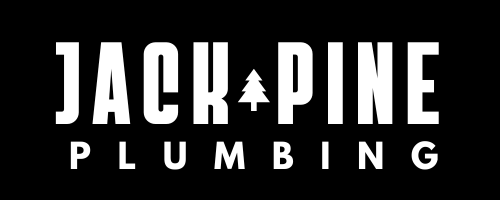The Truth About Chlorine & Chloramine in Your Water- And How to Remove Them
The Truth About Chlorine & Chloramine in Your Water—And How to Get Rid of Them
Ever Wonder Why Your Water Smells (or Tastes) Off?
If your tap water has a weird smell or a taste that makes you question life choices, you’re likely dealing with chlorine or chloramine- municipal disinfectants designed to keep your water bacteria-free. Great for public health, but not so great for your pipes, appliances, or even your skin and hair.
Here’s what you need to know about these chemicals, how they affect your home (and body), and—most importantly- how to remove them for good.
Chlorine & Chloramine: The Necessary Evils of Water Treatment
For over a century, chlorine has been the go-to solution for disinfecting municipal water, wiping out waterborne diseases and making tap water “safe.” But now, many cities- including Edmonton- are switching to chloramine (a chlorine-ammonia combo) because it sticks around longer in the water supply.
Edmonton's water is treated by EPCOR Water Services, which uses chloramine instead of free chlorine to ensure water remains disinfected as it moves through the system. While this helps keep the water bacteria-free, it also introduces taste and odor changes that some residents notice.
The downside? These chemicals don’t just disinfect- hey react with organic matter to create disinfection byproducts (DBPs) like trihalomethanes (THMs) and haloacetic acids (HAAs), which have been flagged as potential long-term health risks. So, while your water may be bacteria-free, it comes at a cost.
The Hidden Costs of Chlorine & Chloramine in Your Home
Beyond the funky taste and potential health concerns, these disinfectants wreak havoc on plumbing and appliances:
Pipe Corrosion: Chlorine and chloramine degrade copper and galvanized steel pipes, leading to leaks over time.
Rubber & Plastic Breakdown: O-rings, gaskets, and water softener resin deteriorate faster, leading to costly repairs.
Appliance Damage: Water heaters, dishwashers, and washing machines suffer from chemical wear-and-tear, reducing their lifespan.
This is particularly relevant in Sherwood Park and surrounding areas, where Strathcona County also receives water from EPCOR, meaning the same chloramine-treated water flows through your home.
How Do Chlorine & Chloramine Affect Your Health?
Inhalation Risks: Ever felt lightheaded in a steamy shower? That’s chlorine vapor. When inhaled, it can irritate the lungs and aggravate conditions like asthma.
Digestive Discomfort: Long-term exposure to disinfection byproducts (DBPs) has been linked to potential gut health issues.
Skin & Hair Damage: Chlorine strips natural oils, causing dry skin, brittle hair, and scalp irritation. Not the spa-like experience you were hoping for.
What About Fluoride?
Fluoride is added to municipal water to prevent tooth decay, but not everyone wants it in their drinking water. Unlike chlorine, fluoride isn’t easily removed by standard carbon filters. You’ll need reverse osmosis (RO), activated alumina, or bone char filtration to get rid of it. Excess fluoride exposure has been linked to dental and skeletal fluorosis, thyroid interference, and potential neurodevelopmental effects. If you want it gone, you’ll need a specialized filtration system.
How to Remove Chlorine & Chloramine from Your Water
If you're ready for water that tastes better, feels better, and protects your home, the answer is carbon filtration- the MVP of chemical removal.
What is Carbon Filtration?
Think of it like a sponge for chemicals. Carbon filtration doesn’t just absorb- it adsorbs, meaning contaminants stick to its surface instead of passing through.
Granular Activated Carbon (GAC): Best for chlorine removal.
Catalytic Activated Carbon (CAC): The gold standard for chloramine removal.
NSF/ANSI 42 Certification: Ensures your system actually removes chlorine and chloramine as advertised.
Why Install a Carbon Filter Before a Water Softener?
A whole-home carbon filter should always be installed before your water softener. Here’s why:
Chlorine & chloramine destroy softener resin, cutting its lifespan in half.
Removing them first ensures your softener works better and lasts longer.
Whole-Home Carbon Filtration: Choosing the Right System
Placement Matters
Install your carbon filter before your water softener. Otherwise, you’re basically applying sunscreen after getting a sunburn- not helpful.
Backwashing vs. Non-Backwashing Carbon Filters
Backwashing Filters: Higher upfront cost but self-cleaning, meaning longer lifespan and less maintenance. Best for high-flow homes.
Non-Backwashing Filters: Lower initial cost, but requires more frequent carbon replacements. Less maintenance now, more later.
Cartridge-Based Filters: Budget-friendly upfront but costly over time. Like a cheap printer- affordable at first, but replacement costs add up.
Whole-Home vs. Drinking Water Filtration
Whole-Home Filtration: Clean water from every tap, protects plumbing, and eliminates chlorine exposure in the shower.
Drinking Water Filtration: More affordable, ideal if you only care about what you consume.
Point-of-Use (Drinking Water) Filtration Solutions
If you just want better-tasting drinking water, here’s what to consider:
Fridge Water Filters: Convenient, but only remove basic contaminants like chlorine- not chloramine or fluoride. They also need frequent replacing (every 6 months). Think of them as the fast food of water filtration- better than nothing, but not the best.
Reverse Osmosis (RO): The most thorough contaminant removal, but requires a drain line and wastes some water.
Ultrafiltration (UF): Removes microscopic contaminants without needing a drain.
Carbon Cartridge Filtration: Budget-friendly, but only effective for chlorine removal.
Which System is Right for You?
Want chlorine/chloramine-free water throughout your home? Go for a whole-home filtration system. It protects pipes, appliances, and your skin.
Just need better-tasting drinking water? A point-of-use system like RO or UF is a great, cost-effective choice.
Not sure which system fits your home best? Jack Pine Plumbing is here to help. With expert guidance, premium solutions, and seamless installations, we make water filtration effortless- because smarter plumbing means smoother living.

